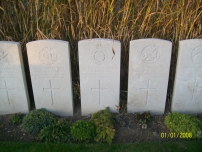| First Name: | Joseph | Last Name: | POWELL | |
|---|---|---|---|---|
| Date of Death: | 17/09/1916 | Lived/Born In: | Shoreditch | |
| Rank: | Company Sergeant Major | Unit: | London2 | |
| Memorial Site: | ||||
Current Information:Enlisted-London La Neuville British Cemetery, Corbie, Somme
The Battle of the Somme (July-November, 1916) By the beginning of September, 1916, the Battle of the Somme had been raging for two months. Thousands of men had already been killed or wounded or were simply missing, never to be seen again and and just a few square miles of the French countryside, all in the southern part of the battlefield, had been captured from the enemy. Mistakes had been made by the various commanders and would be continued to be made but there was no turning back as the British, Australians, South Africans, New Zealanders and Canadians carried on battering away at the German defences in the hope of a breakthrough, So it continued all the way through to November with nearly every battalion and division then in France being drawn into it at some stage. In the end the German trenches had been pushed back a few more miles along most of the line but the cost in lives had been staggering. By the end of the fighting in November, 1916, British Army casualties numbered over 400,000, killed, wounded and missing. The Battle of Flers (15-22 September, 1916) On 15th September, 1916, the offensive on the Somme was renewed with a full scale attack on the German third line of defences. Four Army Corps were used on a front that stretched from Combles, through the village of Flers and on to Courcelette.. The artillery barrage that preceded this attack was more concentrated than that on 1st July and the attack itself was more successful. The villages of Flers, Martinpuich and Courcelette were captured and the enemy was finally pushed out of High Wood, but the breakthrough was not achieved and the reality was that when the battle ended on 22nd September, the front line had just been moved forward a mile or so. The battle is notable for being the first time that tanks were used. At Zero, 6.20am, on 15th September, with the tanks moving off before to gain a tactical surprise, the 2nd London battalion of 169 Brigade, 56th Division, attacked on the right of the British line, next to the French, with the objective of establishing a defensive flank along the north-west slopes of the Combles ravine. Overnight, 2nd London had dug assembly trenches south of Leuze Wood and in the morning a tank was ready at the corner of the wood This began its movement forward just before 6am and twenty minutes later the two leading companies of 2nd London advanced behind a creeping artillery barrage with their right directed on the junction of Combles Trench and Loop Trench. There was some uncut wire to negotiate but the German artillery barrage was late and Combles Trench was taken quite easily. The tank did well in assisting the attack but machine-gun fire prevented 2nd London from then pivoting and frontally attacking the Loop and Loop Trench. Fighting continued all day with bombing (grenade) attacks into which the rest of the battalion were drawn in as were the bombers of 5th London. In the end a barricade was established across Combles Trench but this meant that they were still eighty yards off their final objective, namely the sunken road in the Loop. A final attack at 11pm failed to improve the position. At 5am on the next day, 16th September, another attack was made on the strongpoint at the junction of Loop Trench and the Sunken road and although an initial advance of fifty yards was made the bombers were then forced back to their starting positions after suffering a number of casualties. That night 2nd London were relieved and moved back to Falfemont Farm. Among the casualties suffered by 2nd London was Joseph Powell who died from wounds on 17th September. |
||||
| « Back to Search Results | ||||
| If you think any of the information shown here is incorrect, Click Here to submit your amends and comments | ||||




